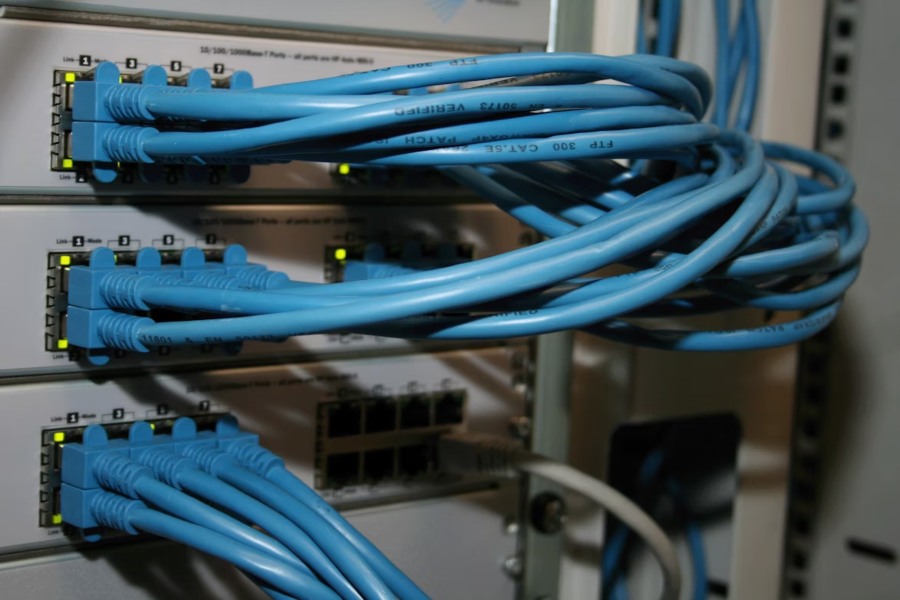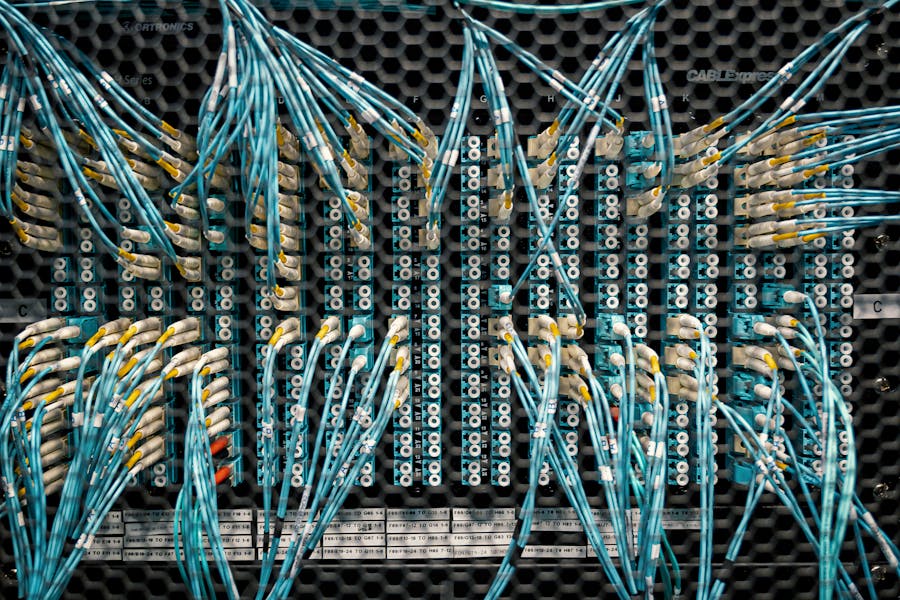
The modern internet functions like a sprawling digital universe with billions of devices communicating daily. But how do these devices locate each other across vast networks of servers, routers, and data centers? The answer lies in a robust system of unique identifiers called IP addresses. Understanding why do we need IP addresses for the internet to function correctly is crucial to grasping how the internet seamlessly connects us to websites, services, and people across the globe.
Whenever you visit a website, send an email, or stream a video, your device relies on an IP (Internet Protocol) address to locate and connect to other machines. Without IP addresses, the internet wouldn’t be slower or glitchy — it wouldn’t work. They’re foundational to data routing, security protocols, geolocation services, and domain resolution.
This article will explore the full scope of why IP addresses are essential. We’ll answer key questions like how IP addresses enable communication, when and why they’re assigned, and how they protect users. So, if you’ve ever wondered why do we need IP addresses for the internet to function correctly, this detailed guide is for you.
Why do we need IP addresses for the internet to function properly?
We need IP addresses because they act like digital home addresses, letting devices find and communicate with each other over the Internet. Without IP addresses, data cannot be sent or received, making internet communication impossible.
The Role of IP Addresses in Guiding Internet Traffic Efficiently
Imagine trying to send a letter without an address—you know where it should go, but without a destination, delivery is impossible. The internet functions in a very similar way. Every device, whether a smartphone, laptop, or server, needs a specific address to receive or send data. That address is known as an IP (Internet Protocol) address.
An IP address is a unique numerical label assigned to each device on a network. It performs two essential functions: identifying the device and providing its location on the network. The identification ensures that data knows precisely where it’s coming from and going to. The location function helps route data across complex digital pathways efficiently.
For instance, when you type a website URL into your browser, the DNS (Domain Name System) translates that domain name into an IP address so your device knows which server to connect to. Without IP addresses, emails wouldn’t send, websites wouldn’t load, and digital communication wouldn’t happen. They’re critical for the Internet to work properly.
How Do IP Addresses Enable Internet Functionality?
IP addresses are the foundation of how data is transferred across the Internet. Without them, communication between devices would be chaotic, and modern digital experiences such as browsing, streaming, and emailing would cease functioning. Below, we explore how IP addresses power internet functionality and why they’re essential for seamless online operations.
IP Addresses Guide Data Across the Web
When you send a request online, such as opening a website or watching a video, your data is broken into smaller packets. These packets are directed from your device to the correct server and back, using IP addresses as their digital guideposts. Without accurate IP information, data would be misrouted or lost.
They Identify and Differentiate Devices
Every device on a network requires a unique IP address to communicate effectively. This ensures that data from a server reaches the correct recipient, eliminating confusion among devices on the same network.
Domain Names Depend on IP Resolution
Domain Name System (DNS) servers translate human-readable URLs into IP addresses. This conversion allows browsers to locate the exact web server hosting the content.
IPs Power Location-Based Services
Streaming platforms and search engines use your IP address to determine your location, delivering region-specific content and advertisements accordingly.
Crucial for Network Security
Security tools monitor IP activity to detect, block, or allow data transmissions, helping safeguard users from cyber threats and unauthorized access.
What Are the Core Functions of IP Addresses?
IP addresses are essential for the smooth operation of the Internet. They do more than just identify devices — they serve multiple foundational roles that ensure data is properly routed, managed, and secured across networks. Here are the key functions that highlight why IP addresses are critical for internet functionality:
- Device Identification: Every device connected to the internet is assigned a unique IP address. This ensures that data packets reach the correct destination without confusion.
- Routing Efficiency: IP addresses enable routers to determine the most efficient path for sending and receiving data, reducing latency and improving connection speed.
- Hosting Websites: Web servers use IP addresses to host content. When users enter a domain name, DNS systems translate it into an IP address to locate and load the correct website.
- Remote Access and VPN Usage: IP addresses reroute traffic through virtual private networks (VPNs), helping users mask their identity and enhance privacy.
- Network Monitoring and Management: System administrators rely on IPs to monitor traffic, manage network performance, allocate resources, and resolve issues.
- Cybersecurity and Threat Detection: IP logs can trace suspicious or unauthorized activity, helping to identify and prevent cyber threats in real time.
When Do IP Addresses Become Essential in Everyday Usage?
IP addresses are used constantly in the background of our daily online interactions, often without us even realizing it. They ensure data moves correctly and securely between devices and services. Below are some common scenarios where IP addresses play a vital role:
- Connecting to Wi-Fi: When your device connects to a Wi-Fi network, it is assigned a unique IP address. This allows your device to communicate with the router and access the internet.
- Browsing Websites: When you enter a URL into your browser, DNS servers convert your request into an IP address. This IP directs your browser to the correct website.
- Sending Emails: Email servers use IP addresses to send and receive messages. The sender and recipient servers rely on these identifiers to deliver mail accurately.
- Online Gaming: Multiplayer games use IP addresses to connect players. This allows real-time interaction and synchronizes game data between users across locations.
- Using Smart Devices: IoT (Internet of Things) devices such as smart thermostats, speakers, or cameras use IP addresses to communicate with your home network and apps.
- Streaming Services: Platforms like Netflix or YouTube detect your IP address to determine your location, personalize content, and adjust video quality based on your bandwidth.
How Are IP Addresses Assigned and Managed?
IP address assignment and management are crucial for maintaining order and functionality across the vast internet. Various systems and authorities ensure devices receive the correct type of IP address based on their usage and location.
Dynamic vs Static IP
A dynamic IP address is temporarily assigned by your Internet Service Provider (ISP) and often changes periodically. This type is most common among home users due to its ease of use. In contrast, a static IP address remains constant over time, making it ideal for businesses that host websites or need uninterrupted remote access.
IPv4 vs IPv6
IPv4, the older standard, uses 32-bit addresses and is still widely used. However, due to the explosion of connected devices, IPv6 was introduced. With its 128-bit format, IPv6 offers a virtually limitless number of unique addresses, supporting the future of internet expansion.
IP Address Management Authorities
Regional Internet Registries (RIRs), such as ARIN, RIPE, and APNIC, oversee IP address distribution globally and ensure fair allocation across regions.
Local IP vs Public IP
Local IP addresses function within private networks, while public IPs connect devices to the broader internet. Both are essential for internal and external communications.
Conclusion
The question of why we need IP addresses to function properly goes beyond mere curiosity—it touches the core of how the Internet operates. IP addresses are essential for identifying devices, routing data, and enabling communication between systems across the globe. Without them, the Internet would be disconnected networks with no way to interact.
Every digital activity relies on IP addresses, from browsing websites to streaming videos and using smart devices. As technology evolves and the number of connected devices increases, especially with the growth of IPv6 and IoT, the importance of IP addressing continues to rise. Understanding their role helps ensure more secure, efficient, and seamless digital experiences.
FAQ’s
What is an IP address and why is it important?
An IP address is a unique identifier assigned to each device on a network. It plays a critical role in ensuring that data is sent and received by the correct devices across the internet.
Can the internet work without IP addresses?
No, the Internet cannot function without IP addresses. They are essential for routing data, identifying devices, and enabling global communication between systems.
What’s the difference between IPv4 and IPv6?
IPv4 uses a 32-bit address format, which limits the number of unique addresses available. IPv6 uses a 128-bit format, providing a much larger address pool and improved network efficiency.
Why does my IP address change?
Most ISPs assign dynamic IP addresses that can change periodically. This helps manage network resources efficiently and is common in residential internet connections.
Are IP addresses linked to my identity?
Not directly, but an IP address can reveal your general geographic location and internet service provider. In some cases, it may be used in legal or investigative contexts.






